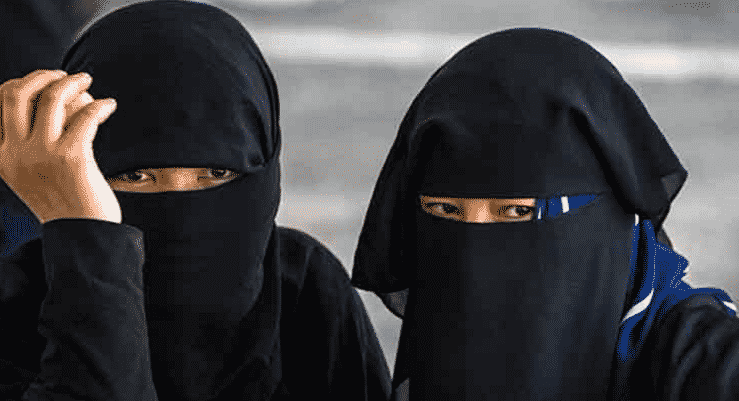- The issue of the applicability of the Muslim Personal Law in India and the skewed impact it has on gender relations within the Muslim community had once again raised itself with Kashipur’s Shayara Bano challenging the validity of “triple talaq”.
- Last time this issue of protection of women in Islamic legal norms had gained public prominence was in 1985 when the Shah Bano case had raised concerns.
- The “Muslim Personal Law” is based upon the Shariat.
- Roughly, the Shariat can be explained as the provisions in the Quran as well as the teachings and practices of Prophet Mohammad.
- However, the origin, evolution and the applicability of the Shariat is far more twisted than that.
- Article 14 of the Indian Constitution grants “equal protection of law” to all its citizens. But when it comes to personal issues (marriage, divorce, inheritance, custody of children, etc), Muslims in India are governed by the Muslim Personal Law which came into force in 1937.
Also Read: Triple Talaq – A Need for Triple Thinking
How did the Shariat originate?
- Before Islam was introduced as a religion to Arabia, a tribal social structure prevailed there. The tribe as a whole determined what was law and the rules were unwritten. These laws modified with time, as and when society felt the need for change.
- By the seventh century, the Muslim community got established in Medina and soon started spreading to the surrounding regions.
- With the establishment of Islam, the will of God, as transmitted in the Quran as the revelations of Muhammad, came to supersede every tribal custom.
- These writings in the Quran along with unwritten customs, also known as the Shariat is what governs Islamic society.
- Additionally, the Shariat is also based on the Hadith (actions and words of the Prophet as recorded by his companions). Originally, they were very broad and general solutions to practical problems in society.
Read in Hindi: शरीयत और मुस्लिम पर्सनल लॉ: आपके जानने योग्य तथ्य
How did the Shariat evolve over time?
- It would be a huge mistake to argue that the Shariat has remained static over centuries, as the immutable word of God as established in the seventh century.
- During the period when the Prophet was alive, the legislation mentioned in the Quran kept developing in response to practical problems faced by the Prophet and his community.
- After his death too, the presence of different schools of Sharia and the way different modern Islamic countries have applied it to their legal domain, is evidence of the capacity in the Islamic law to be interpreted and developed in ways meeting the needs of society.
- There are four different schools of Islamic law, each of which interprets the writings in the Quran in different ways and consists of varying rules and regulations for the Islamic community world over.
- The four schools (Hanafiyya, Malikiyya, Shafiyya and Hanabaliyya) developed in four different centuries.
- Countries with Muslim population have each adopted their Islamic laws based on one of these schools depending on their specific situation.
- Accordingly, modern Islamic nation states have responded to the needs of modernity by embracing the Shariat in ways suiting their social and political needs.
- For instance, Egypt responded to the calls of modernity in the late nineteenth century by extending secular laws based upon theories drawn from the West.
- In Saudi Arabia on the other hand, the Islamic law, as interpreted by the Hanabali Shafiyya school of thought, is strictly followed.
How was the Muslim law applied in India?
- The Muslim Personal Law (Shariat) Application Act was passed in 1937 with the aim to formulate an Islamic law code for Indian Muslims.
- The British who were at this point in time governing India were trying to ensure that Indians be ruled according to their own cultural norms. When it came to distinguishing between laws made for the Hindus and those for the Muslims, they laid out the statement that “clear proof of usage will outweigh the written text of the law” in the case of Hindus.
- For the Muslims on the other hand, the writings in the Quran would be of foremost importance. Since 1937 therefore, the Shariat Application Act mandates aspects of Muslim social life such as marriage, divorce, inheritance and family relations. The Act lays out that in matters of personal dispute the State shall not interfere.
Are personal laws specific to Muslims in India?
- Such legislations have been made over the years for other religious groups in India as well, thereby framing separate civil codes for different religions in the country.
- For instance, the Hindu Succession Act of 1956 which lays out guidelines for property inheritance among Hindus, Buddhists, Jains and Sikhs.
- The Parsi Marriage and Divorce Act of 1936 lays out rules to be followed by the Parsis according to their religious traditions.
- The Hindu Marriage Act of 1955 had codified laws related to marriage among Hindus. In fact, in 1955 this Act had been amended to include laws on divorce and separation which were previously not part of it.
- Apart from these separate civil codes related to marriage, there exists a Special Marriage Act as well which was last amended in 1954. It lays out provisions for marital laws irrespective of the religion to which the persons concerned belong. Muslims too can get married under this law.
Is the Shariat Application Act in India unchangeable?
- The applicability of the Shariat Act has come under controversy in the past as well. There have been previous instances when the issue of protection of women’s rights as part of the broader fundamental rights came into conflict with religious rights.
- Most well known among these is the Shah Bano case. In 1985, 62-year-old Shah Bano, filed a lawsuit, seeking alimony from her former husband. The Supreme Court, in this case, had held up her right to alimony, but the judgment was vehemently opposed by the Islamic community who considered it to be going against the written rules in the Quran.
- The case triggered a controversy regarding the extent to which courts can interfere with personal/religious laws. The Congress government which was then in power, passed the Muslim Women (Protection of Rights on Divorce Act), which made it necessary for the husband to pay alimony to his wife, but only during the period of iddat, that is 90 days after divorce.
- There have been plenty of instances of protests against personal laws. One of the prime agendas of the women’s movement in India since the 1930s has been the discrimination faced by women in personal laws, across all religions.
- Earlier in March 2016, Justice B. Kemal Pasha, a sitting Judge of the Kerala High Court had made a strong protest against Muslim women being denied equal rights under the Muslim Personal Law. However, voices of protest against reforms in the personal laws have made it extremely difficult to make amends.
- The Shariat Application Act in India protects the application of Islamic laws in personal legal relationships, but the Act does not define the laws.
- It clearly states that in matters of personal disputes, the State shall not interfere and a religious authority would pass a declaration based on his interpretations of the Quran and the Hadith.
- Given this background of the matter, it is difficult to have it undergo changes since it raises the question, to what extent should the State (which is supposed to be secular) interfere with the personal affairs of the civilians.
- While the protection of the rights of women has been called into time and again in such cases, “majority of those practising Islam consider the laws of the Shariat to be completely correct and so they cannot be subjected to legislative changes considering the fact that freedom of religion, practices and so on, are part of fundamental rights,” says practising lawyer M.R. Shamshad.
Source: TheIndianExpress











